Website Report: Ethical and Moral Issues in Posthumous IVF Treatment
VerifiedAdded on 2023/04/21
|5
|1097
|276
Report
AI Summary
This website ethic report examines a case in Israel, considered the world capital of in vitro fertilization (IVF), where the parents of a deceased man seek to use his sperm for IVF treatment. This raises ethical concerns regarding a child being fathered by a dead man, potentially living without paternal care. The report discusses the moral and ethical dilemmas associated with artificial reproduction, surrogacy, and religious beliefs. It highlights the emotional considerations of grandparents wishing to have a child of their son to fill the void left by his death. The report also touches upon the ethical standing of health insurance agencies funding IVF and the potential gender biases if similar procedures were performed on a brain-dead woman. It emphasizes the need for defined laws addressing these issues, promoting gender equality, and ensuring a safe future for children born through such procedures, considering potential health risks and unstable environments. The report concludes by advocating for inclusive, equitable, and justifiable societal frameworks involving government, medical agencies, legislators, researchers, and stakeholders.
1 out of 5
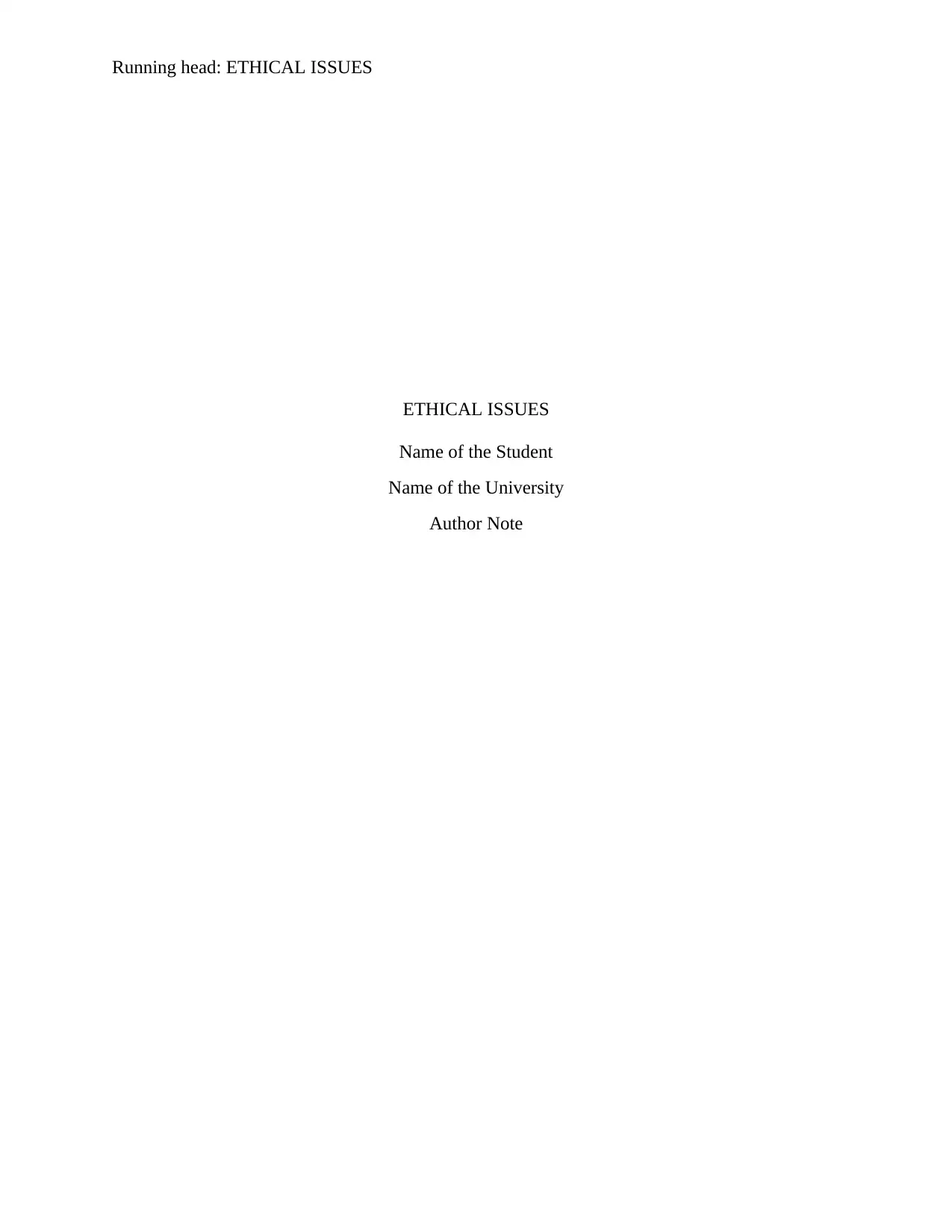
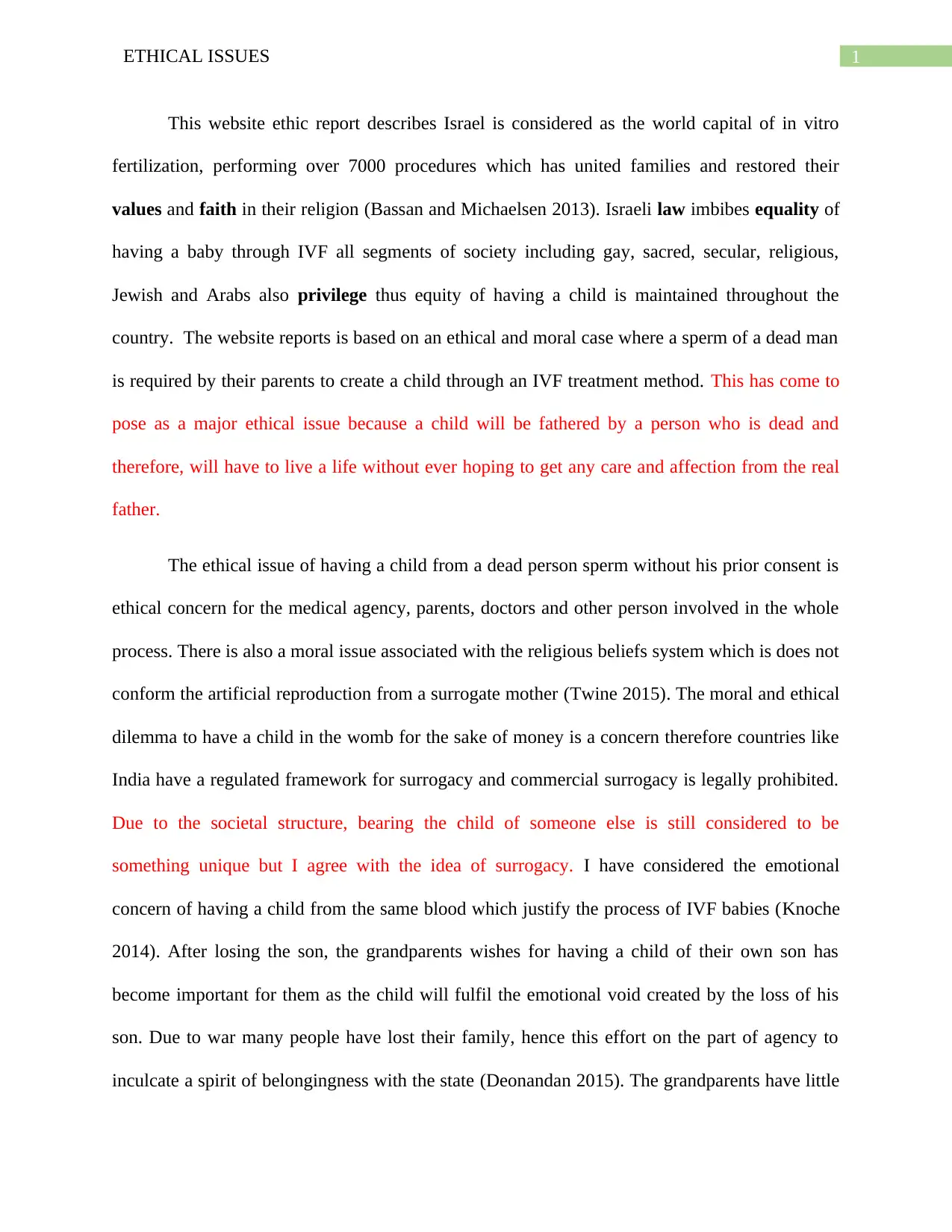
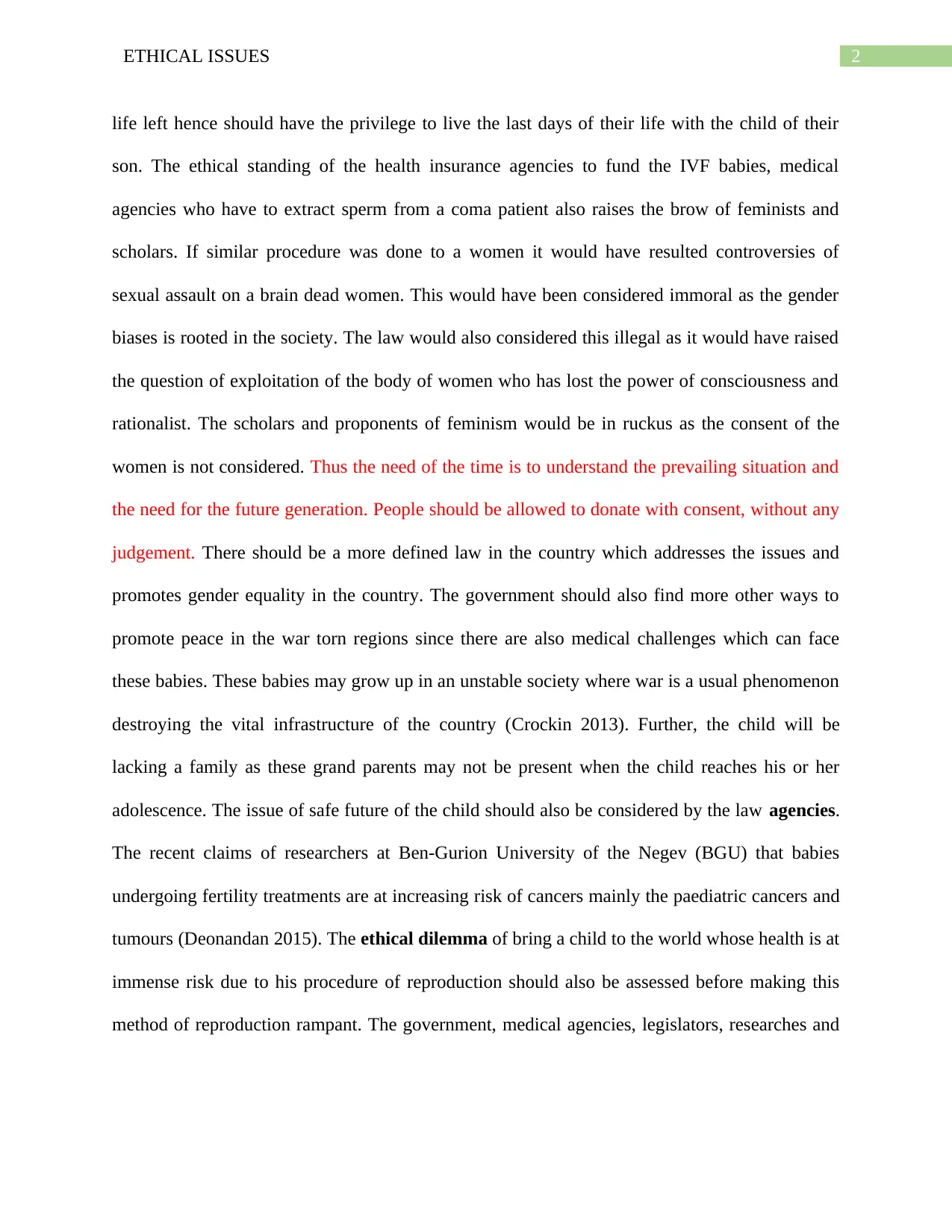

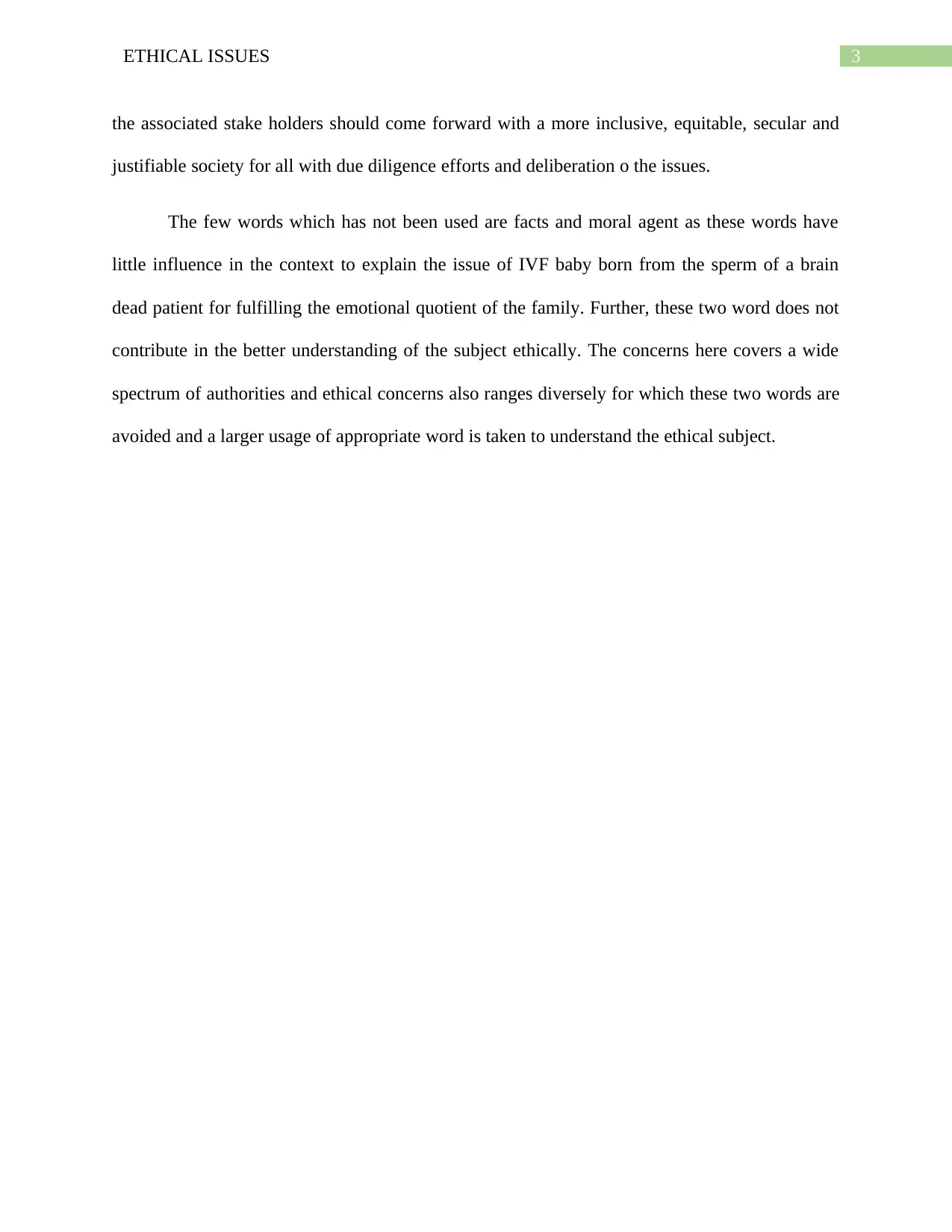
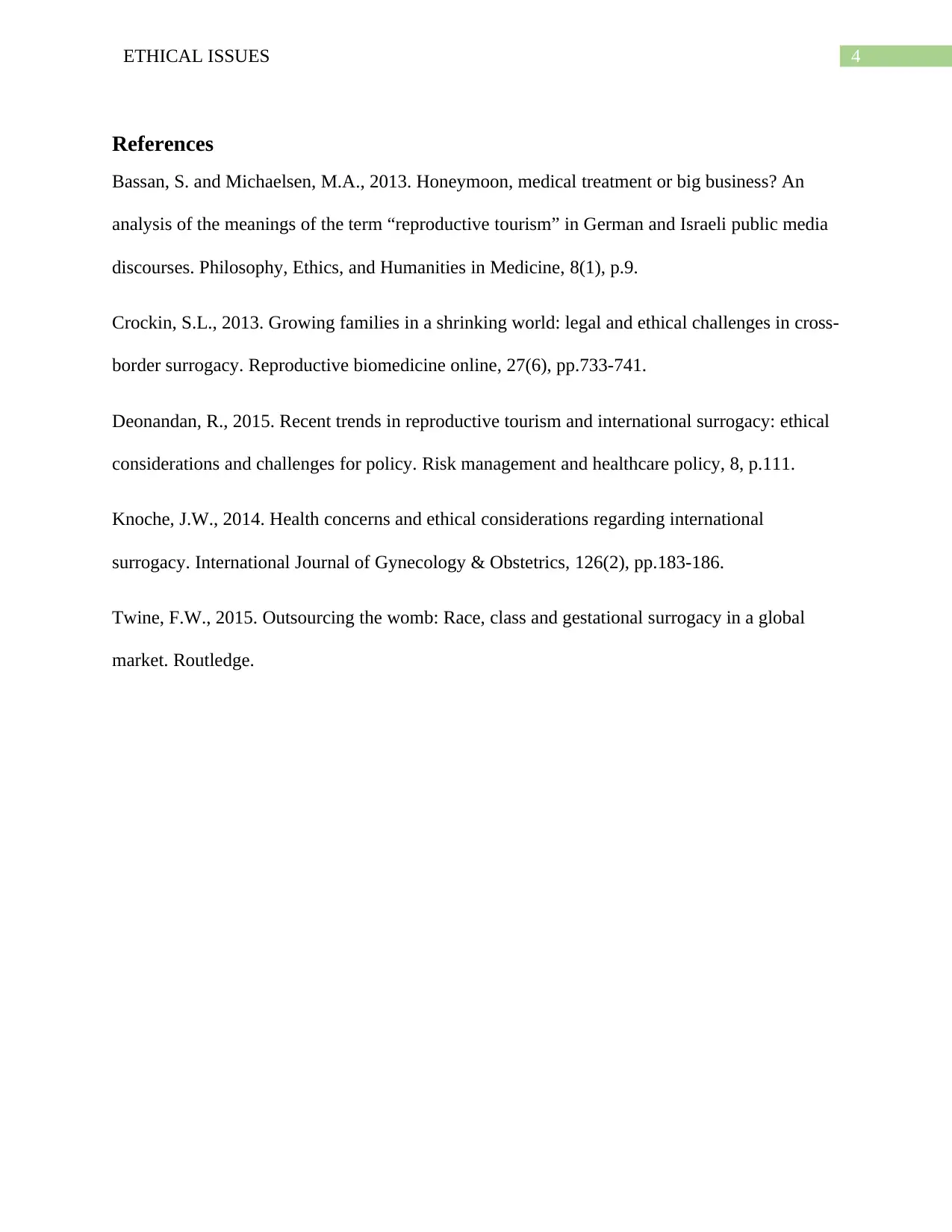






![[object Object]](/_next/static/media/star-bottom.7253800d.svg)